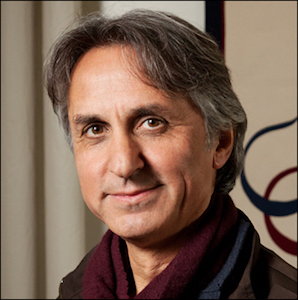Arab Revolutions in Post-Islamist Times: Revolution without Revolutionaries

Arab Revolutions in Post-Islamist Times: Revolution without Revolutionaries
Public Talk by Professor Asef Bayat, Department of Sociology, University of Illinois, USA
Thursday, 1 March 2018, 6:00 PM – 8:00 PM | Room 150, Telus Centre, University of Alberta
Abstract: On the Seventh anniversary of the Arab Spring, Professor Asef Bayat, a prominent sociologist and a distinguished theorist of social movements in the Middle East, will argue that The revolutionary wave that swept the Middle East in 2011 was marked by spectacular mobilization, spreading within and between countries with extraordinary speed. Several years on, however, it has caused limited shifts in structures of power, leaving much of the old political and social order intact. In his most recent book Revolution without Revolutionaries, Professor Asef Bayat— whose Life as Politics anticipated the Arab Spring— uncovers why this occurred, and what made these uprisings so distinct from those that came before. Setting the 2011 uprisings side by side with the revolutions of the 1970s, particularly the Iranian Revolution, Asef Bayat reveals a profound global shift in the nature of protest: as acceptance of neoliberal policy has spread, radical revolutionary impulses have diminished. Protestors call for reform rather than fundamental transformation. By tracing the contours and illuminating the meaning of the 2011 uprisings, Bayat gives us the what is needed to explain and understand our post–Arab Spring world.
For more information about his recent book, please visit http://www.sup.org/books/title/?id=26257
Bio: Asef Bayat is the Catherine and Bruce Bastian Professor of Global and Transnational Studies at the Department of Sociology, University of Illinois, Urbana-Champaign. Before joining Illinois, Bayat taught at the American University in Cairo for many years, and served as the director of the International Institute for the Study of Islam in the Modern World (ISIM) holding the Chair of Society and Culture of the Modern Middle East at Leiden University, The Netherlands.In the meantime, he had visiting positions at the Universality of California, Berkeley, Colombia University, Oxford, and Brown. His books include, Revolution without Revolutionaries: Making Sense of the Arab Spring (Stanford University Press, 2017); Life as Politics: How Ordinary People Change the Middle East (2nd edition: Stanford University Press, 2013);Post-Islamism: The Changing Faces of Political Islam (Oxford University Press, 2013); Making Islam Democratic: Social Movements and the Post-Islamist Turn (Stanford University Press, 2007); Middle East and Its Subaltern: Politics and Movements (Istanbul: Iletisim, 2006); Street Politics: Poor Peoples Movements in Iran (Columbia University Press, 1997); Work, Politics and Power (Monthly Review Press, 1991); and Workers and Revolution in Iran (Zed Books, 1987).
Professor Bayat’s Distinctions and Awards include, Elected as Chair of Islam in the Modern World at University of Leiden); Inaugural Agha Khan Chair of Islamic Humanities at Brown University; Bastian Professor of Global and Transnational Studies, University of Illinois. He has been named as Ford Foundation Fellow, MacArthur Fellow, Open Society Fellow, Guggenheim Fellow, and Wissenschaftskolleg Fellow, Berlin.


